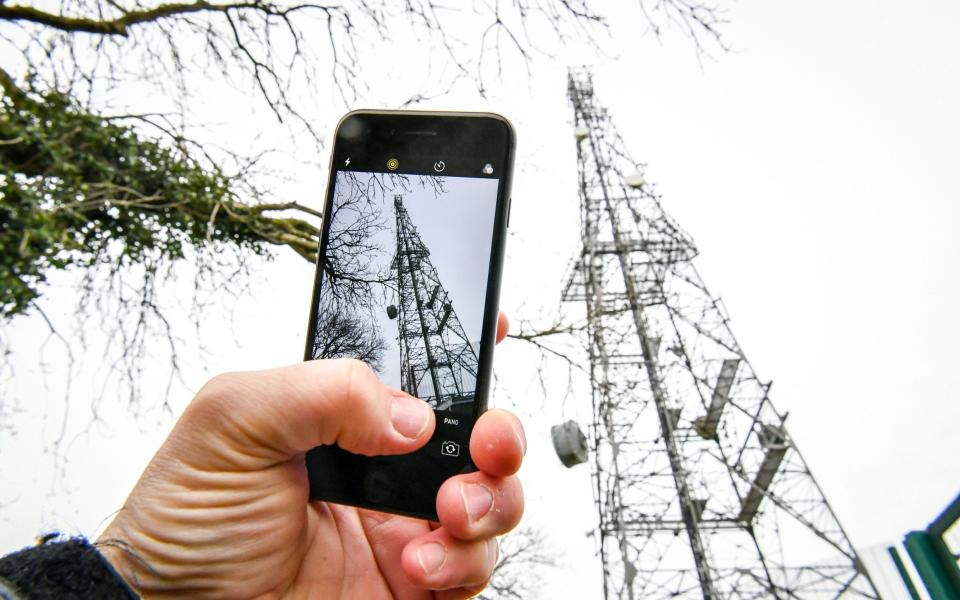Mobile firms to miss deadline to fix rural ‘not-spots’

Mobile firms are set to miss a deadline to tackle so-called signal “not spots” in rural areas after the Government rejected their pleas for an extension.
Dean Creamer, head of Building Digital UK (BDUK), the government body overseeing a £1bn project to improve rural coverage, said officials had blocked a request from operators to push back the initial deadline by 18 months.
Speaking in front of MPs on the Public Accounts Committee, he said: “That wasn’t accepted and we haven’t agreed that and we’ve said that Ofcom will make that assessment as expected.”
The Telegraph last year revealed that Vodafone, Three and Virgin Media O2 had written to the Government asking for an extension to the project’s initial deadline, which requires operators to expand their coverage to reach 88pc of the UK’s landmass by June.
Operators are working on an industry-wide scheme that will help hit the target, known as the Shared Rural Network.
Any delays could prove costly. Ofcom has the power to fine companies up to 10pc of their global turnover if they fail to meet the targets, though officials insisted that any response would be “reasonable”.
BT-owned EE, which has more mobile masts than its rivals and is contributing to the initial phase of the rural coverage project separately, reached its initial target earlier this year.
However, other mobile firms have struggled to build enough masts to plug the gaps in coverage that have plagued rural communities. Bosses have blamed the slow progress on the pandemic, as well as difficulties in securing planning permissions.
The setback on hitting the initial deadline will spark fears that the Government will fail to meet its target of delivering 4G coverage to 95pc of the UK landmass by the end of next year and to the entire country by early 2027.
In a report published in February, the National Audit Office said the programme was running behind schedule and warned that high inflation had driven up costs.
Mobile firms have insisted the final deadline is not at risk, while officials pointed out that operators could catch up even if they miss the initial targets.
Mr Creamer said: “In terms of the way the programme has been structured, there is clearly a big gap between that first licence obligation and then the target. So there is significant contingency, if you like, built into that, which is now being used.”
The Shared Rural Network is one of the key pledges drawn up by former prime minister Boris Johnson under plans to “level up the country”.
Phase one of the project is focused on “partial not spot” areas where at least one operator provides coverage but not all of them. Phase two, which will be funded by the Government, will target “total not spot” areas, where no operators currently provide 4G services.
Any delays will be met by anger from rural campaign groups and could spark accusations that the Conservative Party is letting down countryside voters.
A Virgin Media O2 spokesman said: “We have already built more new sites than any other operator and remain committed to doing everything we can to deliver better mobile connectivity to rural areas.”
A Vodafone spokesman said: “We remain committed to delivering on all elements of the SRN programme and have successfully introduced 4G to rural locations across the UK as part of the wider project which is due for delivery by Jan 2027. We have recently gone live with our 200th site bringing geographic 4G coverage to 83pc of the UK, on track to deliver the Government’s 95pc SRN coverage target by December 2025.”
A spokesman for Three declined to comment. The Department for Science, Innovation and Technology was contacted for comment.
A government spokesman said: “Mobile Network Operators are responsible for delivering the first part of the Shared Rural Network and legally bound to reach 88pc geographic coverage by June 2024.
“The Shared Rural Network has already delivered substantial improvements to mobile coverage across the UK with 4G geographic coverage now at 93.2pc.”

 Yahoo Finance
Yahoo Finance 